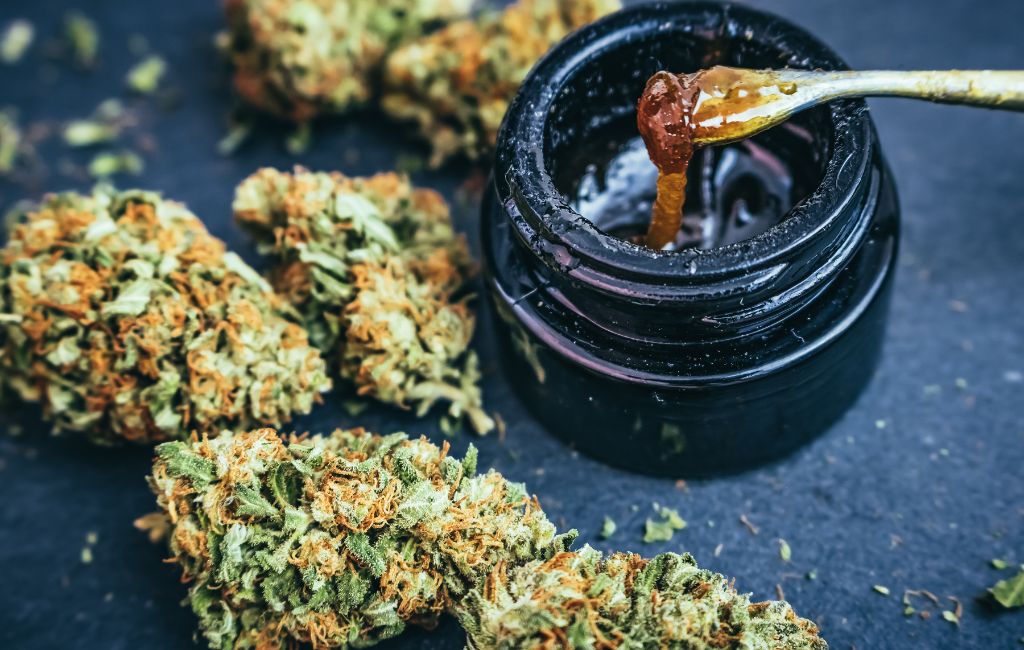THCa Flower: Exploring Its Role in Natural Healing
In recent years, the interest in natural healing methods has surged, with many turning to plant-based remedies for their therapeutic benefits. One such remedy gaining attention is THCa flower. This article delves into the properties of THCa flower and its potential role in natural healing.
Understanding THCa
THCa, or tetrahydrocannabinolic acid, is a non-psychoactive cannabinoid found in raw cannabis plants. Unlike THC, which is known for its psychoactive effects, THCa does not produce a “high.” Instead, it offers a range of potential health benefits that are being explored by researchers and health enthusiasts alike.
How THCa Differs from THC
THCa and THC are chemically similar but differ in their effects on the body. THCa is the precursor to THC. When cannabis is heated through smoking, vaping, or cooking, THCa converts to THC, resulting in psychoactive effects. In its raw form, THCa remains non-psychoactive and retains its unique properties.
Potential Health Benefits of THCa
Research into THCa is still in its early stages, but preliminary findings suggest several potential health benefits:
- Anti-inflammatory Properties: THCa has shown promise in reducing inflammation, which can be beneficial for conditions like arthritis and inflammatory bowel disease.
- Neuroprotective Effects: Studies indicate that THCa may help protect brain cells, potentially offering benefits for neurodegenerative diseases such as Alzheimer’s and Parkinson’s.
- Anti-emetic Effects: THCa may help reduce nausea and vomiting, making it a potential option for patients undergoing chemotherapy.
- Antioxidant Properties: The antioxidant effects of THCa can help combat oxidative stress, which is linked to various chronic diseases.
Case Studies and Research
Several case studies and research projects have highlighted the potential of THCa in natural healing:
Case Study: THCa for Epilepsy
A notable case involves a young girl with severe epilepsy who experienced significant improvement in her condition after using THCa-rich cannabis oil. Her seizures reduced dramatically, and her quality of life improved. This case has spurred further research into THCa’s potential for managing epilepsy.
Research on THCa and Inflammation
A study published in the “Journal of Pharmacology and Experimental Therapeutics” found that THCa exhibited anti-inflammatory effects in animal models. The researchers concluded that THCa could be a promising candidate for treating inflammatory conditions without the psychoactive effects of THC.
How to Use THCa Flower
THCa flower can be used in various ways to harness its potential benefits:
- Raw Consumption: Consuming raw cannabis leaves or flowers in smoothies or salads can provide THCa without converting it to THC.
- Juicing: Juicing raw cannabis is another method to intake THCa. This method preserves the cannabinoid’s properties and offers a convenient way to consume it.
- Tinctures and Oils: THCa can be extracted into tinctures or oils, allowing for precise dosing and easy consumption.
Legal Considerations
The legal status of THCa varies by region. In some areas, THCa is considered legal as long as it is not converted to THC. It’s important to research local laws and regulations before using or purchasing THCa products.
Consumer Experiences
Many consumers have reported positive experiences with THCa flower:
- Pain Relief: Users have reported relief from chronic pain conditions without the psychoactive effects associated with THC.
- Improved Sleep: Some individuals have found that THCa helps improve sleep quality, leading to better overall health.
- Enhanced Mood: Anecdotal evidence suggests that THCa may help improve mood and reduce anxiety.
Future Directions
The potential of THCa in natural healing is an exciting area of research. As more studies are conducted, a clearer understanding of its benefits and applications will emerge. Researchers are particularly interested in exploring THCa’s role in managing chronic conditions and its potential as a neuroprotective agent.
Conclusion
THCa flower represents a promising avenue in the field of natural healing. With its non-psychoactive properties and potential health benefits, it offers an alternative for those seeking plant-based remedies. As research continues to unfold, THCa may become a valuable tool in the quest for natural wellness.
